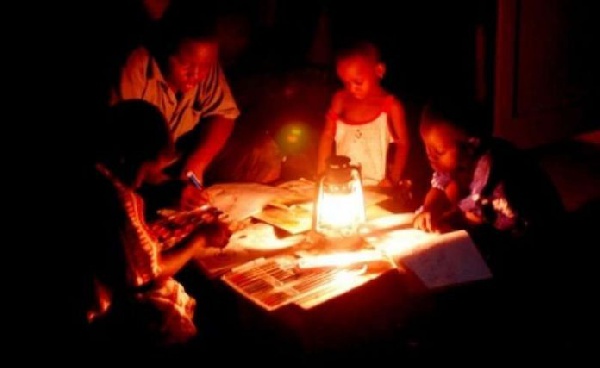- by andrews-adunkwah
- April 4, 2024
Click the link below to join Our WhatsApp group for daily brief on current trends in the country.
Join Here!
Loading

In a move that has stirred both concern and frustration among customers, the Electricity Company of Ghana (ECG) and the Ghana Grid Company (GRIDCo) announced a significant power outage set to last for three weeks.
The announcement, made on Thursday, June 13, cites a critical shortage of gas supply from Nigeria as the primary cause. As a result, businesses and residents are bracing for an unpredictable period of electricity disruptions.
The gravity of the situation has again led many business owners to call on the ECG to provide a load-shedding timetable, a tool that would allow them to plan and mitigate the impact of the outages. However, these calls have been met with a firm rejection from Ing. Kwadwo Obeng, the Deputy Managing Director of ECG.
Ing. Obeng’s stance on the issue is clear: a load-shedding timetable is not necessary. This position has left many stakeholders bewildered, as past experiences with power crises in Ghana have shown that structured load-shedding timetables can help manage expectations and minimize disruptions.
The root of the current crisis lies in a shortage of gas supply from Nigeria. This issue has once again highlighted the vulnerability of Ghana’s energy sector, which heavily relies on imported gas to fuel its power plants. The ECG and GRIDCo have indicated that the shortage is beyond their control, thus necessitating the power cuts.
The lack of a load-shedding timetable has heightened anxiety among business owners and the general public. For businesses, especially those in manufacturing and services that rely heavily on a steady power supply, the inability to predict when the power will be available could mean significant financial losses. Small and medium-sized enterprises, which form the backbone of Ghana’s economy, are particularly at risk.
One concerned business owner, Mrs. Yaa Adomako, who runs a cold storage facility in Accra, expressed her frustration: “Without a timetable, we cannot plan our operations. The unpredictability is bad for business. We need to know when the power will be out so we can make alternative arrangements.”
The government’s response to the situation has been relatively muted, with no clear directives issued to address the concerns raised by businesses and residents. Stakeholders in the energy sector, however, have urged for a more proactive approach. Some experts suggest that ECG’s refusal to issue a timetable might stem from the uncertainty surrounding the duration and severity of the gas supply shortage.
Dr. Kwame Agyeman, an energy policy analyst, remarked, “A load-shedding timetable, while not solving the underlying gas supply issue, could at least provide some structure and predictability. The decision to forgo a timetable may indicate that the situation is more fluid and unpredictable than we realize.”
As the three-week period of power outages unfolds, the resilience of Ghanaians will once again be tested. Businesses and households will have to navigate the challenges of unstable power supply without the guidance of a load-shedding timetable. While the ECG and GRIDCo work to resolve the gas supply issue, the call for greater transparency and planning remains a crucial demand from all affected parties.
The coming weeks will show the extent to which Ghana’s energy infrastructure can withstand such shocks and whether lessons learned from past crises will be applied to manage the current one effectively. For now, Ghanaians brace for the uncertain road ahead, hoping for a swift resolution to the gas supply shortage and a return to reliable power.

Click the link below to join Our WhatsApp group for daily brief on current trends in the country.
Join Here!
0 Comments: